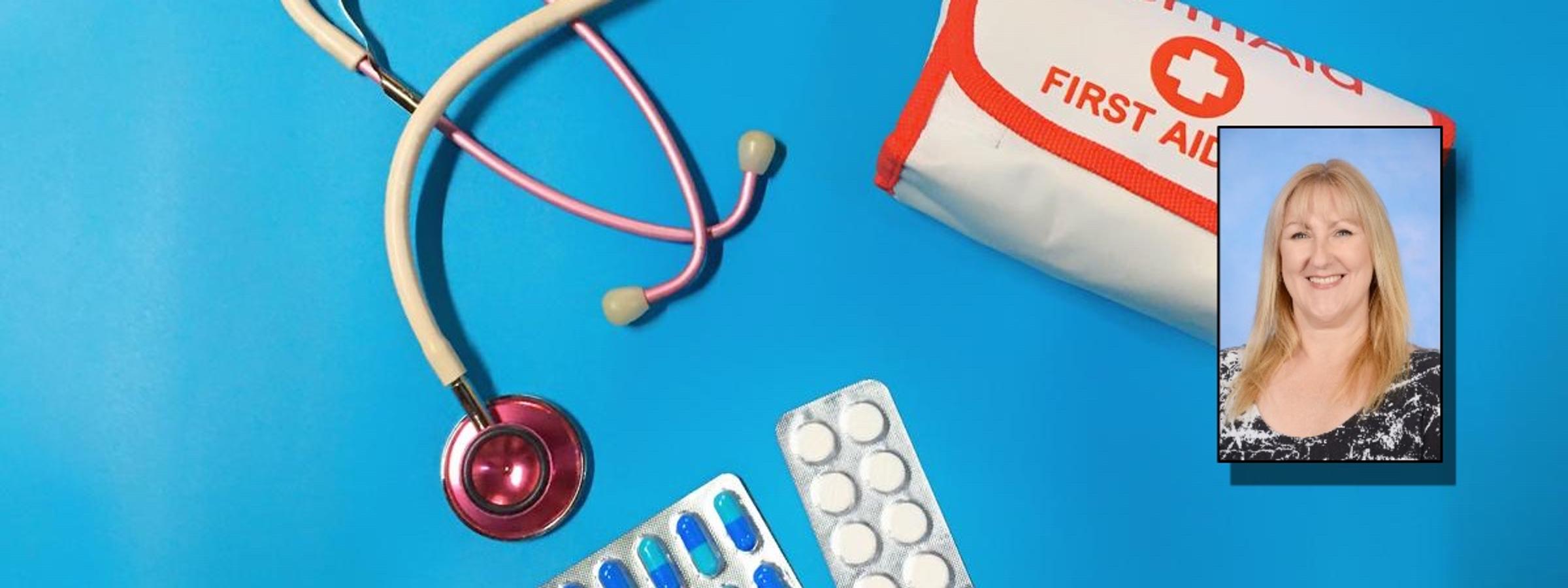First Aid Update
Vicki Collie: First Aid Officer

First Aid Update
Vicki Collie: First Aid Officer
All medication (with the exception of Ventolin) must come to the office with a note or Medication Request Form.
All asthma and allergy Action Plans need to be updated every 12 months by your child's GP and forwarded to the office.
Any queries about Medical Action Plans or medication please call the office.
Please pack a spare change of clothes in your child's school bag for wet weather/accidents.
Whooping cough cases continue to increase across Victoria, particularly among school-aged children.
Whooping cough is a very contagious infection, mostly spread through coughing or sneezing. Symptoms include:
Whooping cough can lead to life threatening infections in babies.
If your child is unwell, they should not attend school. Please see a doctor if you or your child develops whooping cough symptoms. Early diagnosis and treatment will help reduce the spread of the infection.
If your child is diagnosed with whooping cough, they must not attend school for 21 days after the onset of the cough, or until they have received 5 days of antibiotic treatment.
You must notify the school if your child is diagnosed with whooping cough.
To further reduce the spread of infection to your child and the school community, the Public Health and Wellbeing Regulations 2019 require that some students who were in the same classroom as a student diagnosed with whooping cough should not attend school.
Your child should not attend school for 14 days after they were last exposed to a person diagnosed with whooping cough, or until they have taken 5 days of a course of antibiotic treatment if they are:
This exclusion is required by law – refer to the School exclusion table for primary schools and children’s services.
If your child is diagnosed with whooping cough, please contact the school to let us know.
I hope we can work together to protect the whole school community by following the recommended advice.
For more information about whooping cough, refer to Whooping cough on the Better Health Channel.
Vaccination is the best way to reduce the risk of whooping cough. The Department of Health recommends staying up to date with immunisations, including booster doses. A free booster dose of the pertussis vaccine is covered under the national immunisation program for students aged 12 to 13. If you are unsure about your child’s vaccination status for whooping cough, please discuss with an immunisation provider, such as your doctor.
We really appreciate your support in keeping our students safe and well.
People who have asthma or hay fever can get severe asthma symptoms during grass pollen season when high amounts of grass pollen in the air combine with a certain type of thunderstorm.
Epidemic thunderstorm asthma is when a large number of people develop asthma symptoms over a short period of time. Epidemic thunderstorm asthma events are uncommon and don’t occur every year. In south-east Australia they can happen during grass pollen season from October through to December. They are not the cause of seasonal increases in asthma symptoms seen every year. Thunderstorm asthma can affect those with asthma or hay fever – especially people who experience wheezing or coughing with their hay fever.
Asthma affects about one in nine Australians and can start at any age – even as an adult. It is important to recognise asthma symptoms and see your GP if you experience any of them. People with asthma may experience one or more of the following common symptoms: wheezing – a high-pitched sound coming from the chest while breathing, breathlessness a feeling of tightness in the chest and/or a persistent cough.